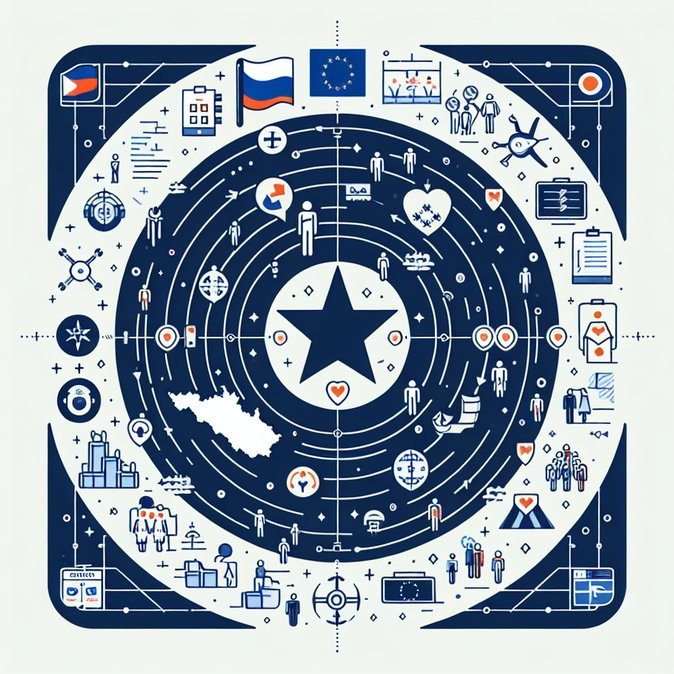
The European Commission on 12 November formally kicked off the first Annual Migration Management Cycle, a new monitoring and burden-sharing instrument created by last year’s Migration Pact. The accompanying report identifies six Member States—Bulgaria, Czechia, Estonia, Croatia, Austria and Poland—as facing “significant migratory situations” because of five years of cumulative pressure.
For Czechia the label is driven almost entirely by the influx of Ukrainians fleeing Russia’s invasion; they now represent roughly 3.7 % of the national population. As a consequence, Prague may request a partial or total deduction from the financial contributions that non-front-line states must otherwise pay into the Solidarity Pool. The Commission’s statement highlights that such exemptions are designed to free up resources in countries whose public services are already stretched by large numbers of arrivals.
![EU Launches Annual Migration Management Cycle—Czechia Flagged for Solidarity-Payment Exemption]()
The new cycle will run every autumn: the Commission publishes data, Member States file exemption or relocation requests, and the Council decides by qualified majority. For employers and relocation teams the process adds a predictable timetable for policy changes—useful when forecasting wage costs linked to social spending or tax surcharges.
Analysts note that the classification could also bolster Czechia’s negotiating hand in 2026 talks on EU long-term residence reform: Prague can argue that it is already contributing through direct refugee hosting. Companies should, however, prepare for possible administrative adjustments as ministries reallocate staff from asylum processing to integration and labour-market programmes.
For Czechia the label is driven almost entirely by the influx of Ukrainians fleeing Russia’s invasion; they now represent roughly 3.7 % of the national population. As a consequence, Prague may request a partial or total deduction from the financial contributions that non-front-line states must otherwise pay into the Solidarity Pool. The Commission’s statement highlights that such exemptions are designed to free up resources in countries whose public services are already stretched by large numbers of arrivals.

The new cycle will run every autumn: the Commission publishes data, Member States file exemption or relocation requests, and the Council decides by qualified majority. For employers and relocation teams the process adds a predictable timetable for policy changes—useful when forecasting wage costs linked to social spending or tax surcharges.
Analysts note that the classification could also bolster Czechia’s negotiating hand in 2026 talks on EU long-term residence reform: Prague can argue that it is already contributing through direct refugee hosting. Companies should, however, prepare for possible administrative adjustments as ministries reallocate staff from asylum processing to integration and labour-market programmes.


